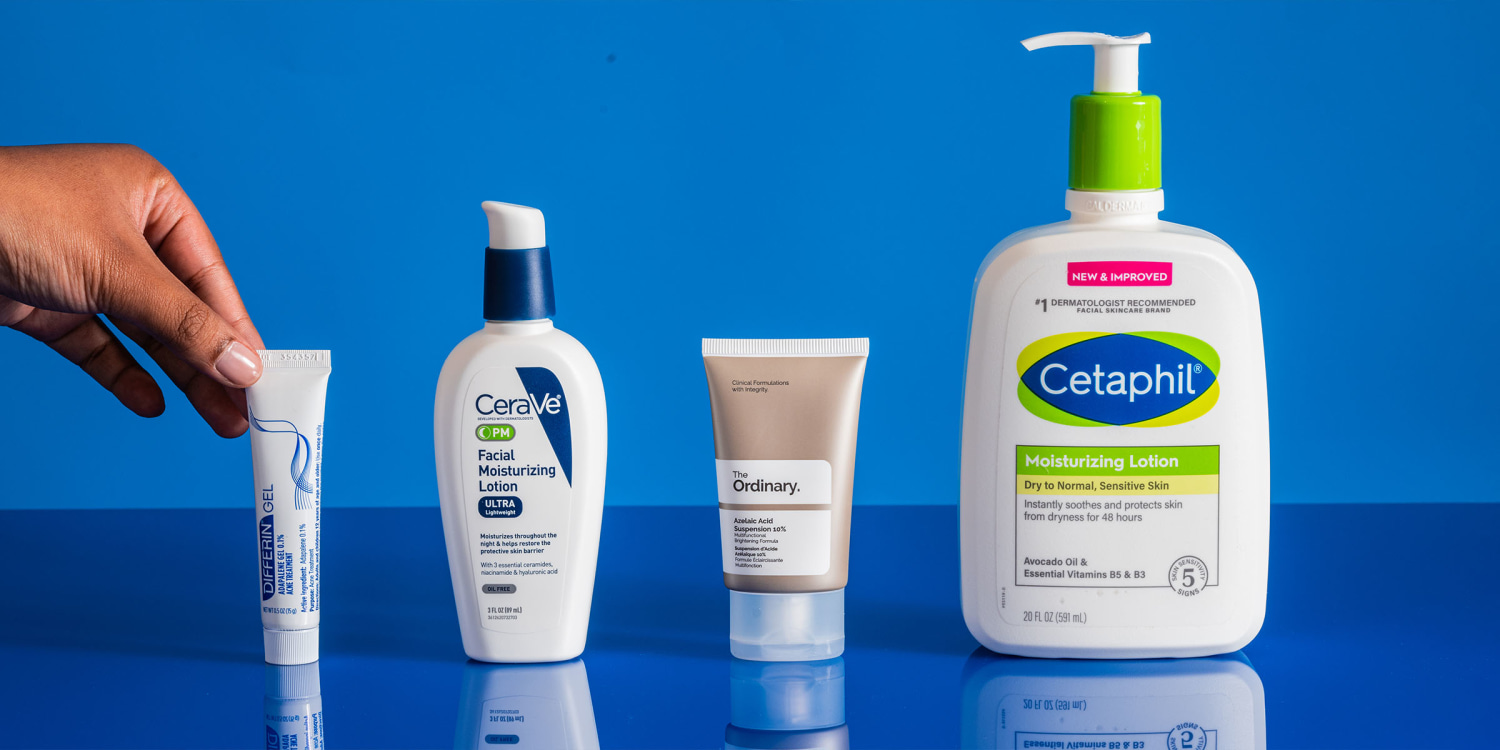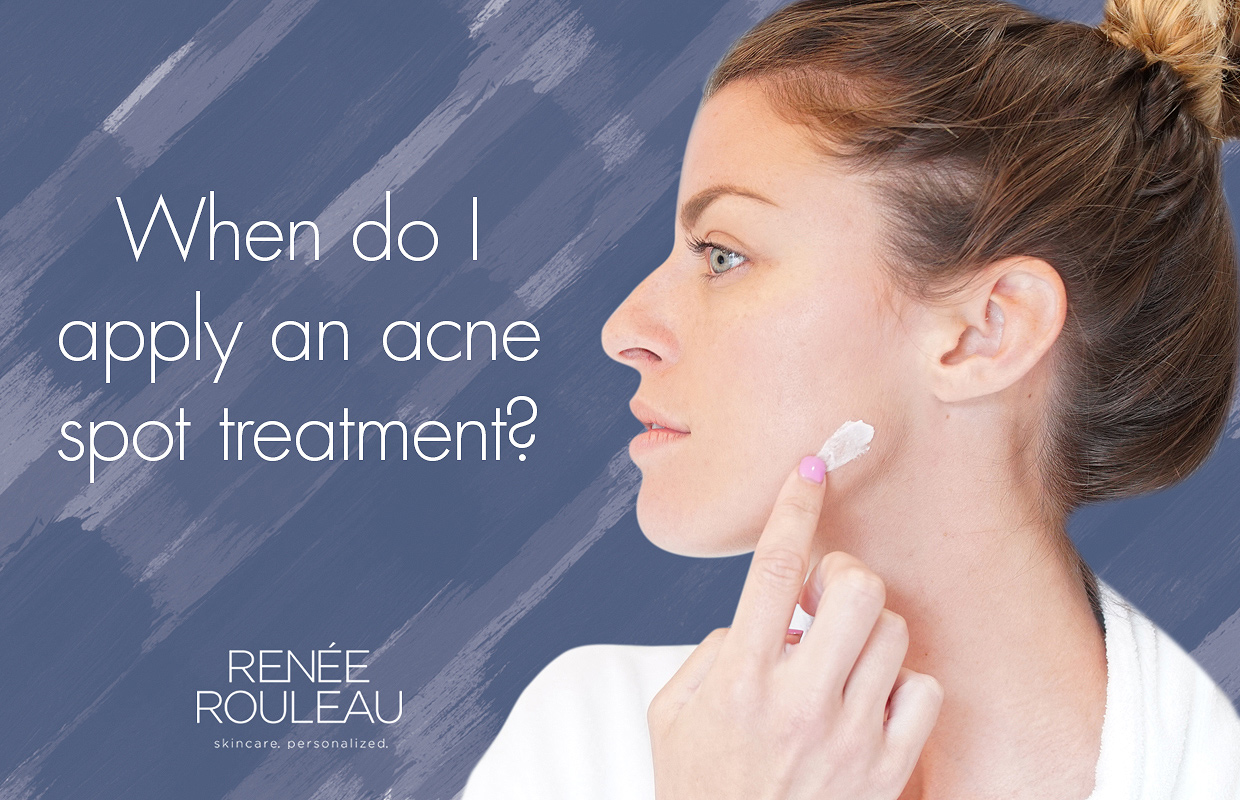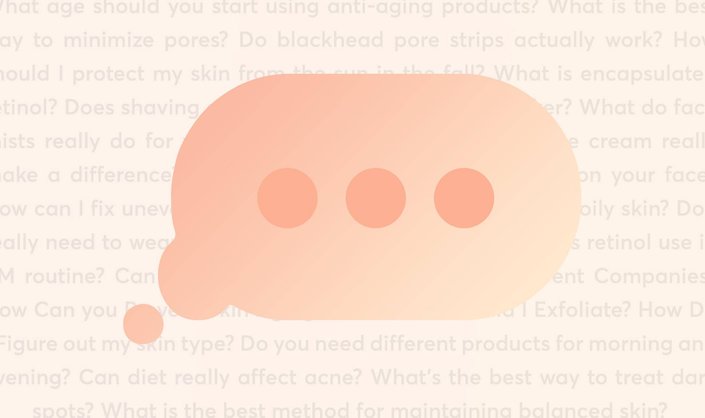It’s best to use one or two acne products simultaneously. Overloading your skin with multiple treatments can cause irritation.
Struggling with acne can be a frustrating experience, leading many to seek a variety of products hoping for clear skin. Understanding the importance of a simplified skincare routine is crucial to prevent aggravating your skin further. Dermatologists often recommend starting with a single product containing proven ingredients like benzoyl peroxide or salicylic acid.
Once your skin adjusts, another product may be added if necessary. This approach allows you to monitor how your skin reacts and ensures that your acne treatment is both effective and gentle. Remember, less is often more when it comes to skincare, and patience is key as results can take several weeks to appear.
Introduction To Acne And Skincare
Understanding Acne and Skincare is key to managing breakouts effectively. Each day, people search for the magic number of acne products to use. The skin is complex, and so is acne. It’s not just about using products; it’s about understanding what causes acne and how it affects lives. Let’s dive into the common triggers of acne and its impact on daily routines.
Common Causes Of Acne
- Hormonal Changes: Often lead to increased oil production.
- Poor Diet: High in sugars and dairy can worsen acne.
- Stress: Triggers inflammation and acne flare-ups.
- Improper Skincare: Using wrong products can clog pores.
- Medications: Certain drugs may provoke breakouts.
Impact Of Acne On Daily Life
Acne can be more than skin deep, impacting self-esteem and confidence. The quest for clear skin often leads to a trial-and-error approach with skincare products. This can result in frustration and even more skin issues. Understanding the right balance of products is crucial.
Emotional Stress: Feeling self-conscious can affect social interactions.
Physical Discomfort: Severe acne can be painful and irritating.
Time-Consuming: Skincare routines may become lengthy and complex.
The Multi-product Approach To Acne Treatment
Acne can be a tough opponent in the battle for clear skin. Many people turn to a multi-product strategy. This means using different products at once. This approach can cover all bases in acne treatment.
Popular Acne Treatment Products
Let’s explore the tools in the acne-fighting arsenal:
- Cleansers: They wash away dirt and oil.
- Toners: Toners can help to restore skin’s pH balance.
- Spot Treatments: These target pimples directly.
- Moisturizers: They keep skin hydrated and healthy.
- Exfoliants: Exfoliants remove dead skin cells.
Risks Of Using Multiple Products
Using many products can help. But it has risks too:
| Risk | Effect |
|---|---|
| Over-drying | Skin may peel or feel tight. |
| Irritation | Redness and inflammation can happen. |
| Chemical Reactions | Products may react and cause issues. |
Using too many products can confuse your skin. It’s vital to find a balance. Talk to a dermatologist before starting multiple treatments.
Simplifying Your Skincare Routine
When it comes to fighting acne, less can often mean more. A simple skincare routine with the right products may be all you need. This approach can improve your skin’s health. It can also save time and money. Let’s explore how to streamline your acne-fighting regimen for better results.
Benefits Of A Minimalistic Approach
A minimalist skincare routine has many perks:
- Fewer products mean a lower risk of irritation.
- It’s easier to stick to a simple routine.
- Identifying triggers for breakouts becomes simpler.
- You can save money by buying only what you need.
- Less waste benefits the environment.
How To Choose Essential Products
Focus on the basics to keep your skin clear:
- Gentle cleanser: Removes dirt and oil without stripping skin.
- Treatment: Targets acne with active ingredients like benzoyl peroxide or salicylic acid.
- Moisturizer: Hydrates and protects the skin barrier.
- Sunscreen: Shields skin from harmful UV rays, preventing scars from darkening.
Choose products based on your skin type. Look for non-comedogenic labels. They won’t clog pores. Always patch test new products. This ensures they don’t cause irritation.
Remember: Your skin’s needs can change. Review and adjust your routine as necessary. A dermatologist can help select the best products for your skin.

Credit: www.nbcnews.com
Key Ingredients In Effective Acne Treatments
Finding the right acne treatment can be a game-changer. Key ingredients play a crucial role. They target different acne causes. Let’s explore these powerful components.
Salicylic Acid And Its Benefits
Salicylic acid is a star in acne-fighting. It’s a beta hydroxy acid. It deeply cleans pores. Here’s how it helps:
- Unclogs pores: Breaks down dead skin cells.
- Reduces swelling: Soothes inflamed skin.
- Prevents breakouts: Keeps pores clear.
Benzoyl Peroxide For Acne Control
Another hero ingredient is benzoyl peroxide. It’s known for its effectiveness. Below are its benefits:
| Benefit | Description |
|---|---|
| Kills bacteria | Destroys acne-causing bacteria. |
| Oxygenates pores | Introduces oxygen to pores, reducing bacteria. |
| Peels away layers | Helps shed skin and clear dead cells. |
Single Product Vs. Combination Therapy
Choosing the right acne treatment can be a challenge. With so many options available, it’s essential to understand whether a single product or a combination of therapies will best suit your skin’s needs. Let’s explore the pros and cons of monotherapy and when to step up to combination therapy for clearer skin.
Effectiveness Of Monotherapy
Using just one acne product can sometimes do the trick. This approach, known as monotherapy, relies on a single active ingredient to target acne. It’s often the first step in an acne treatment plan. Benefits of monotherapy include:
- Simplicity in skincare routine
- Lower risk of skin irritation
- Easier to track results and side effects
Monotherapy works well for mild acne. It’s best to choose a product with proven efficacy. Look for key ingredients like benzoyl peroxide or salicylic acid.
When To Consider Combination Therapy
For stubborn or severe acne, combination therapy often becomes necessary. This method uses multiple treatments to tackle different causes of acne, such as:
| Combination Therapy Includes | Targets |
|---|---|
| Topical retinoids | Prevent clogged pores |
| Antibiotics | Reduce inflammation and bacteria |
| Benzoyl peroxide | Kills acne-causing bacteria |
Consider combination therapy when:
- Monotherapy hasn’t cleared your acne
- Your acne is moderate to severe
- You have both inflammatory and non-inflammatory acne
Consult with a dermatologist before starting combination therapy. They can tailor a treatment plan to your specific skin type and acne severity.

Credit: blog.reneerouleau.com
Customizing Your Acne Treatment Plan
Finding the right balance in an acne treatment plan is key. Your skin is unique, and so is your acne. A tailored approach is essential to effectively target and treat your specific skin concerns. Too many products can overwhelm your skin, while too few may not provide the desired results. Discover how to customize your acne treatment plan for optimal skin health.
Assessing Your Skin Type
Before adding products to your routine, understand your skin type. Is it oily, dry, combination, or sensitive? This knowledge guides which products to select. For example, oily skin may require different care than dry skin. Use gentle cleansers for sensitive skin, and oil-free moisturizers for oily types.
Tailoring Products To Your Acne Severity
The severity of your acne – mild, moderate, or severe – also determines the products you need. Mild acne might just need a simple routine with a few key products, while severe acne could require a more robust plan. Choose treatments with the right ingredients for your acne level. Here’s a brief guide:
| Acne Severity | Product Considerations |
|---|---|
| Mild Acne | Topical retinoids, Salicylic acid cleansers |
| Moderate Acne | Benzoyl peroxide, Antibiotics (topical or oral) |
| Severe Acne | Isotretinoin, Hormonal therapy |
Remember, the right combination and number of products will vary. Consult a dermatologist to create a plan that works best for you.
Lifestyle Factors That Influence Acne
Lifestyle factors play a crucial role in managing acne. Your daily habits affect your skin’s health. Understanding these can help you control breakouts more effectively.
Diet And Acne Connection
What you eat impacts your skin’s condition. Research shows a strong link between certain foods and acne severity. High-glycemic foods, such as sugars and refined carbs, can trigger acne. These foods cause blood sugar spikes, leading to inflammation and increased oil production.
- Dairy products might also worsen acne for some people.
- Eating more fruits, vegetables, and whole grains can help.
- Include foods rich in omega-3 fatty acids like fish and flaxseeds.
- Drink plenty of water to keep your skin hydrated.
| Food Type | Effect on Acne |
|---|---|
| High-glycemic foods | Increases risk |
| Dairy | Potentially increases risk |
| Omega-3 rich foods | Reduces risk |
Importance Of Stress Management
Stress can worsen acne. When you are stressed, your body produces more hormones such as cortisol. This can lead to increased oil production, which might cause more acne.
- Practice relaxation techniques like deep breathing or yoga.
- Ensure you get enough sleep each night.
- Regular physical activity can reduce stress.
- Consider talking therapies if stress feels overwhelming.
By managing stress, you not only improve your skin but also enhance your overall well-being.

Credit: www.allure.com
When To See A Dermatologist
Deciding when to see a dermatologist for acne can be confusing. Many people try several over-the-counter (OTC) treatments first. Yet, specific signs suggest it’s time to seek professional help. These include severe acne, acne that leaves scars, and acne that doesn’t improve with OTC products.
Limitations Of Over-the-counter Products
OTC products can be effective for mild acne. They often contain ingredients like benzoyl peroxide or salicylic acid. But, they have limitations:
- May not be strong enough for severe acne
- Can irritate the skin if not used correctly
- Often take longer to see results
If your acne persists or worsens, it’s crucial to consider these limitations.
Benefits Of Professional Assessment
A dermatologist can provide a thorough skin assessment. This helps in many ways:
- Better understanding of your skin type and acne
- Customized treatment plans that target your specific acne type
- Access to prescription medications that are stronger and faster-acting
Professional guidance can drastically improve your skin’s health and appearance.
Seeing a dermatologist is essential if you’re not getting results from OTC products. A professional can offer powerful treatments and personalized advice. This guidance is crucial for healing your skin and boosting your confidence.
Conclusion: Embracing Simplicity
Skin care routines can get complex with many products. Simple is often better. Let’s wrap up the key takeaways.
Recap Of Essential Points
- Overuse can harm: Too many acne products can irritate your skin.
- Less is more: Stick to a few proven products for better results.
- Consistency is key: Regular use of a simple routine works wonders.
Encouragement To Maintain A Simple Routine
Don’t feel pressured to buy every acne treatment you see. Choose wisely and stick to a routine. Trust in a few reliable products. Your skin will thank you.
Remember: Patience and simplicity in your skin care will lead to clearer skin.
Frequently Asked Questions
How Many Acne Treatments Should I Use?
Use one or two acne treatments at a time to avoid skin irritation. Consult a dermatologist for personalized advice.
Is 4 Skincare Products Too Much?
No, 4 skincare products are not too much if they address different needs and are used correctly. Stick to a routine that suits your skin type.
Can You Use Too Many Acne Products?
Yes, using too many acne products can irritate the skin and worsen acne. Stick to a simple, consistent skincare routine.
Is It Ok To Use Multiple Acne Products?
Using multiple acne products is generally not recommended. Combining treatments can cause skin irritation and worsen acne. Consult a dermatologist to tailor a safe, effective acne treatment plan.
Conclusion
Navigating the sea of acne products can be overwhelming. Aim for simplicity and listen to your skin’s response. A cleanser, treatment, and moisturizer may suffice. Consult a dermatologist for personalized advice. Remember, less can be more for a clearer complexion.
Keep it balanced, and give products time to work their magic.

